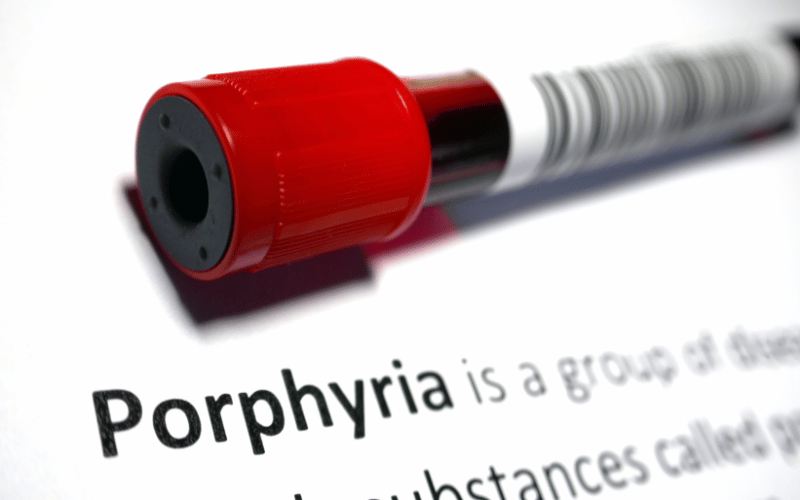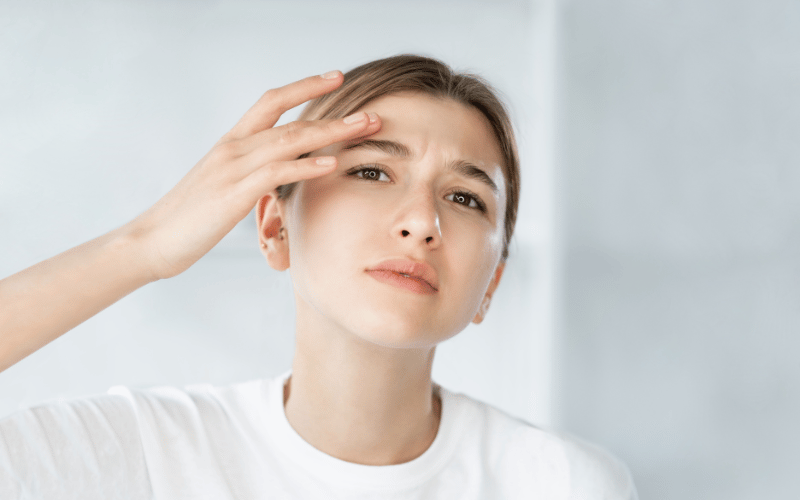Introduction: Understanding Porphyria Cutanea Tarda (PCT)

Porphyria Cutanea Tarda (PCT) is an enigmatic condition, often cloaked in medical jargon and unfamiliar terminology. For most, this is a name that draws blank stares. And yet, for those who suffer from it or suspect they might, this name represents a daily challenge. Delving into the world of PCT means exploring a rare skin condition that is a type of porphyria, stemming from a deficit in enzyme activity. This leads to an unsettling buildup of porphyrins in the liver.
But what does that really mean for the average person? At its core, PCT manifests as a range of symptoms that, when pieced together, paint a clear picture of the condition. This is not about just one or two symptoms you can easily shrug off, but a collection of signs that can affect one’s quality of life.
Sunlight, which many of us bask in, becomes a potential adversary for PCT patients. A minor scrape or injury can escalate into a painful blister. Even seemingly unrelated occurrences, like changes in urine color or unusual hair growth, play into the larger PCT narrative. Knowing these symptoms, recognizing them, and seeking timely medical intervention can make a world of difference. This isn’t just about understanding a medical condition; it’s about recognizing its impact on everyday life.
As we delve deeper into the specific symptoms of PCT, it’s crucial to approach them not as isolated incidents but as interconnected facets of a more significant challenge. While PCT is rare, awareness shouldn’t be.
Symptom 1: Skin Sensitivity to Sunlight

Porphyria Cutanea Tarda (PCT) has a sneaky way of turning everyday joys into potential threats, and the sun is the prime example. While most of us eagerly await sunny days to enjoy the outdoors, for PCT patients, it’s a time of caution. This isn’t about avoiding a suntan or dodging sunburns. This is a sensitivity on another level altogether. The sun, which symbolizes vitality and life for many, can be a daunting adversary for those with PCT. This new relationship with the sun, characterized by an aversion, isn’t based on preference but a very real, painful reaction that can occur upon exposure.
What’s causing such a fierce reaction? It’s a chemical ordeal. PCT leads to a buildup of specific porphyrins in the skin. When these chemicals encounter sunlight, they react, leading to blisters or sores that are distinctly painful. These aren’t your standard sunburn blisters; they’re intense, often prolonged, and leave marks. And while we commonly associate sunburns with long hours under the scorching sun, for PCT sufferers, even fleeting moments can trigger this reaction.
This condition doesn’t discriminate. Any part of the skin exposed to sunlight can be a battleground. However, some areas are more commonly affected due to their frequent exposure. The usual suspects? Hands, forearms, and face. These are areas we often leave uncovered, making them prime targets. So, a simple stroll in the garden or a quick errand run can result in painful reminders of PCT.
The fallout of this symptom extends beyond physical pain. It heavily influences daily decisions and activities. For someone without PCT, deciding to go out on a sunny day is a no-brainer. For someone with PCT, it’s a decision weighed down by potential consequences. There’s the choice of clothing, the layering of sunscreen, and the constant vigilance. It’s a condition that demands adjustments, sometimes significant ones.
Adapting to this heightened sensitivity is paramount for those with PCT. While the sun can’t be avoided entirely, certain measures can provide relief. Protective clothing, wide-brimmed hats, and potent sunscreens become more than just accessories; they’re necessities. It’s about striking a balance, understanding the condition, and making informed choices. Yes, direct sunlight might be a concern, but with awareness and adaptation, those with PCT can reclaim some of the joy that sunny days bring. (1)